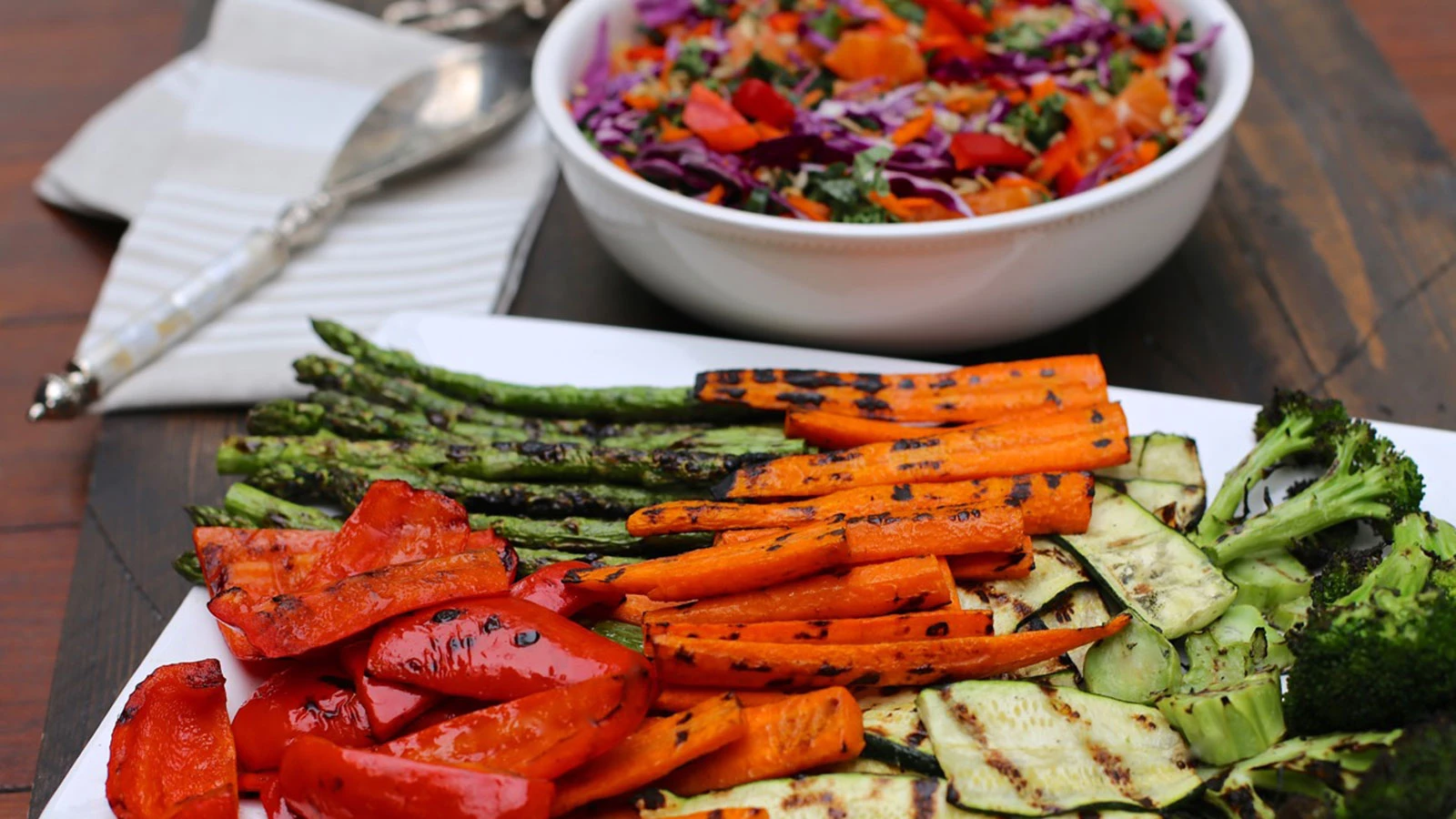Turn Down the Food Noise

What if the only thoughts you had about food were positive – if food was a source of pleasure, nourishment, and nutrients, rather than stress and confusion?
What if your thoughts about food were simply:
“Wow, this smoothie is phenomenal!” Or “Andrea would love this colorful zucchini pasta with pesto and cherry tomatoes; I’ll have to send her a link after dinner!”
Sounds amazing (and stress-free!), doesn’t it? The truth is, most of us think about what to eat…or not eat…far too often. In a 2013 study, researchers found that women typically thought about food 12 times a day; those under 25 had it on their minds twice as much as those over 55.
Unfortunately, those thoughts aren’t always positive. They’re often full of anxiety and stress: worry that we ate too much fat or not enough protein, unkind things about our bodies or weight, guilt about the choices we make, or simple confusion.
Frankly, it’s exhausting! I get it because I lived with my own running dialogue for years. The chatter was accompanied by a lot of food rules, shoulds, food guilt, and impossibly high standards. Not fun!
These negative patterns can affect our overall self-esteem, our relationships, and even how we spend our time and energy. When we devote mental space to food-related fretting, we have less of it for the people we love, the vacations we’re planning, and the exciting projects we’re undertaking.
Changing our thought patterns about food and our bodies can be a lifelong process, but there are some easy steps that we can take today. We can quiet the “food noise” that inundates our daily lives. And when we turn down the volume, we tune into our bodies and start to trust our intuitions instead, taking food from stressful to satisfying.
Three Ways to Quiet Food Noise
1. Media
Magazines, television, and the Internet are filled with recipes, studies, and experts, all eager to tell us which supplement we should be taking and which foods we shouldn’t be eating. But until we can listen to our bodies and understand their needs, it might be a good idea to go on a media fast.
-
When you’re watching TV and ads come on, use that time to unload the dishwasher, put in a load of laundry, or let the dog out.
-
If your favorite food blogger posts a recipe based on a “must try” superfood, remind yourself that what’s good for someone else might not work for you.
-
Consider food-related findings with an open but objective mind. New studies and announcements flood the Internet and airwaves every day, but not all of them turn out to be true for everyone forever.
-
Remember that you are the only real expert on your body and your health. Gurus, doctors, and nutritionists can give you ideas or share information, but at the end of the day, only you know what’s right for you.

2. Other People
We’re strongly influenced by the people we surround ourselves with (whether we like it or not!), and their habits and thought patterns can be contagious. If we spend time with people who talk constantly about their food choices, that chatter finds its way into our subconscious.
I’m not just referring to friends who love junk food; it can be equally challenging to spend time around people who are constantly listing their healthy meals or telling you about the new supplement they’re taking. It’s no fun to eat lunch with someone who side-eyes your order or says things like “You’re so lucky you can eat that. I could never get away with it!”
Here are a few ways to make your food-related social interactions less charged:
-
Instead of meeting for meals or drinks (where there are ample opportunities for food-related chatter), invite your friend on a hike or take a class together.
-
When a friend starts telling you about a new diet or meal plan, simply say, “It sounds like you’ve really put a lot of thought into that. Say, how did [reference a totally different topic that you’ve talked about in the past] turn out?”
-
If your friend seems determined to talk about calories, nutrients, and carbs, try something like, “I can understand how that would work for some people. I’m trying really hard to tune into my body and figure out what works best for me, personally.”
3. Ourselves
Even if we successfully limit our exposure to food advertisements; scare-tactic studies; and well-meaning, calorie-obsessed friends, we still have to contend with the voices inside our heads.
When we try to change our habits, it’s often easier to replace rather than remove. Let’s work to replace judgmental internal food commentary with some of these mantras.
-
Instead of “I should really be eating more ________.”
try “I know myself. I trust myself. I’m doing what’s right for me.” -
Instead of “I read that I shouldn’t be eating _________.”
try “I can eat what I like, as long as I am honest about how I feel after I eat it.” -
Instead of “I don’t know what to eat! Food is so confusing!”
try “I am qualified to listen to my body and know what it needs.”
When we take these steps to quiet all the external – and internal! – food chatter, we make it easier to listen to our bodies and what they truly want, trusting ourselves and following our innate wisdom. When we decrease the volume, we can actually hear ourselves.
And once we start to feel better and more confident in one area of our lives, it inevitably trickles into other areas of our lives.
In other words: turn down the noise, and turn into you.
Reprinted with permission from kaleandchocolate.com
Another article from YogaUonline and Elise Museles: Are You Eating Too Much of a Good Thing?
Our favorite soup recipe from Kale and Chocolate’s Elise Museles: Coconut Curry Soup.
 Elise Museles is an attorney turned Certified Eating Psychology & Nutrition Expert and creator of Kale & Chocolate. A writer, speaker, teacher and healthy lifestyle advocate, she empowers people to reset their relationship with food & their bodies—by creating a happy, healthy, and ridiculously delicious Food Story. Elise is also the author of the newly released book, Whole Food Energy, (Barron’s Educational Series, January 2016) and shares daily inspiration (and mouth-watering photos!) on FaceBook and Instagram.
Elise Museles is an attorney turned Certified Eating Psychology & Nutrition Expert and creator of Kale & Chocolate. A writer, speaker, teacher and healthy lifestyle advocate, she empowers people to reset their relationship with food & their bodies—by creating a happy, healthy, and ridiculously delicious Food Story. Elise is also the author of the newly released book, Whole Food Energy, (Barron’s Educational Series, January 2016) and shares daily inspiration (and mouth-watering photos!) on FaceBook and Instagram.




